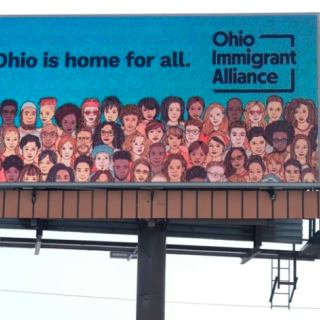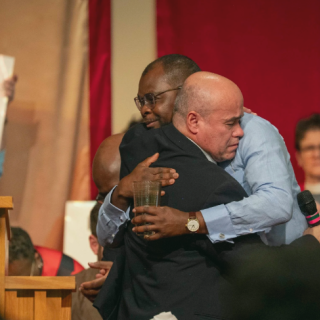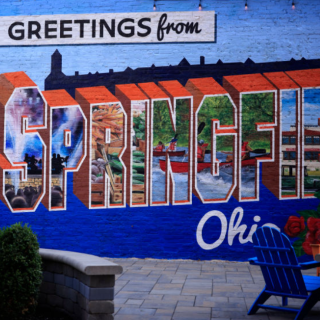Advertisement
“Immigration cases are often life or death matters.”
That’s the message Houleye Thiam, President of the Columbus-based Mauritanian Network for Human Rights in US (MNHRUS), has been sending throughout their organization’s campaign to ensure immigrants have access to counsel in immigration court. Immigrants have no right to a court appointed counsel and must pay for an attorney, a challenge for any working-class community members let alone those who are not citizens.
Mauritania, officially the Islamic Republic of Mauritania, is a country in Northwest Africa, and according to US Congresswoman Joyce Beatty the largest Mauritanian community in the US is here in Central Ohio at roughly 3,000. The United Nations estimates that as many as 680,000 people are currently enslaved in Mauritania. Other human rights abuses, including state-sanctioned violence and torture, land-grabbing, mass food insecurity, and COVID-19 make safe return to the country impossible.
Last week the Biden administration announced its goal of expanding access to legal counsel for vulnerable groups entering our border. The Mauritanian Network and Ohio Immigrant Alliance believe this welcome news must apply to asylum-seekers in the interior of the United States, as well as at the borders.
Thiam said: “I know many people who fled Mauritania with nothing, because they were running for their lives. They tried to explain what happened to them in Immigration Court, but didn’t know the language, much less how to present a legal case. They didn’t have money to hire a lawyer. Now, many have been deported and arrested again in the country they fled. They remain in hiding or living in exile in another country. They are scared. They can’t build a future. And it doesn’t have to be this way. Access to an immigration lawyer should be a bottom line, not a luxury, when it comes to situations like these.” I
n Ohio, immigrants with legal representation are 10 times more likely to achieve success in immigration court than those without lawyers. According to TRAC data on closed/completed cases in the Cleveland Immigration Court, 50 percent of immigrants with lawyers were allowed to remain in the United States, while 33 percent were ordered deported (the rest were granted voluntary departure).
Only 5% of immigrants without legal representation were allowed to remain in the U.S., and 91% were ordered deported.
Watch and listen to testimonies from Black Mauritanians fleeing racism, slavery, and brutality – some of whom had lawyers, others of whom had not – to learn more about what is at stake.
Trump ratcheted up the deportation of Black Mauritanians who had been allowed to live openly in the United States under Orders of Supervision during previous administrations. Upon deportation, many were then accused of being traitors, detained and tortured in Mauritania, denied citizenship and access to identity documents, and forced to flee to another country for safety. Meanwhile, their families, jobs, and homes – really their lives – remain back in the United States. They and their families, many of whom live in Ohio, are calling on the Biden administration to facilitate their return.
Thiam continued: “My heart hurts for the asylum seekers who lost their cases because they didn’t have a lawyer to help them navigate the system, and were then callously deported by Trump, without any concern for the dangers they face. We need a ‘public defender’ program in the U.S. Immigration Court, as these are truly life-or-death matters.”
Access to counsel is only one step that MNHRUS and the Ohio Immigrant Alliance are seeking. Thiam added: “The Biden administration must do everything in its power to ensure immigrants have lawyers, grant TPS for Mauritania, and allow our deported countrymen and women to come home.”
Resources:
See AILA’s information page; a letter from Senator Brown and nineteen others; and this webinar for information about access to counsel.
Read this country report from the U.S. Committee for Refugee and Immigrants and this backgrounder on land-grabbing from MNHRUS for more about the country’s current record of human rights abuses that demand designation of Temporary Protected Status or Deferred Enforced Departure.
Follow the Mauritanian Network for Human Rights in US on Facebook and Twitter @MauritanianFor
Follow the Ohio Immigrant Alliance on Facebook and Twitter @tramontelaof contact Lynn Tramonte, ltramonte@ohioimmigrant.orgwww.ohioimmigrant.org



